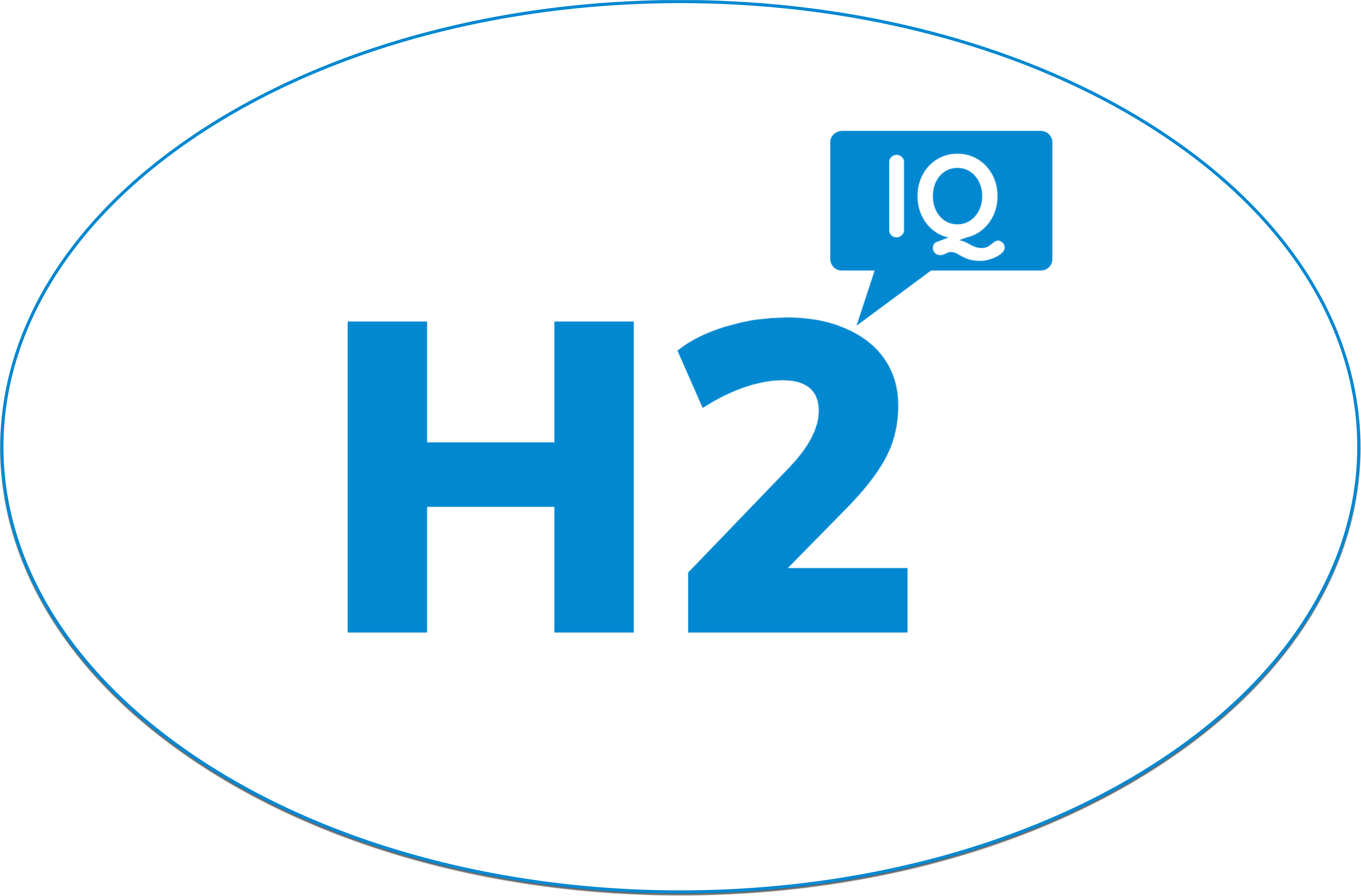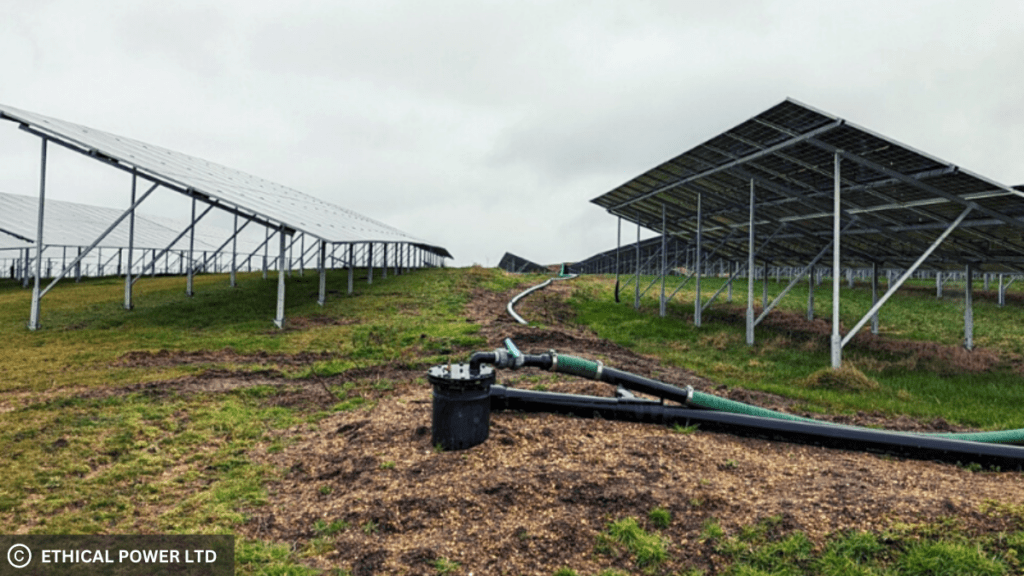
Ethical Power Ltd (the EPC arm of Ethical Power Group) has commissioned the 5 MW Whites Pit solar farm in Wimborne for Canford Renewable Energy. The solar park will feed into a green hydrogen electrolyzer as part of the Dorset Green H2 project.
Canford Renewable Energy is an operator and developer of energy infrastructure across the South West including renewables and gas power stations. The Dorset Green H2 is their first green hydrogen project and also the first facility of this type in the region.
Ethical Power was the EPC contractor for the Whites Pit solar park built on now closed former landfill owned by Canford Renewable Energy. The scope of works by Ethical Power Group companies also included development consultancy and due diligence, civils and reinstatement works and technical due diligence throughout the construction phase.
“Brownfield developments [on previously used land, e.g. landfill sites] are typically more complex than greenfield projects,” comments Neil Buck, Managing Director of Ethical Power Ltd. “To successfully build on a landfill site, you need a deep understanding of the complexities around existing land use, challenging ground conditions and the specific mounting structure requirements. Whites Pit was a difficult project but together with the Canford team we managed to find solutions that ensured the correct multi-tech infrastructure and controls are in place and we confidently met the energization date.”
12,430 solar modules were installed across the 26 acres landfill site. The electricity generated from the solar park will feed into a 0.9MW electrolyzer to produce circa 120,000kg of green hydrogen per year. On overcast days and overnight, the solar energy output on site will be supplemented by gas generated from the closed landfill site. This ensures the hydrogen production can continue day and night.
Nathan Ross, CRE’s Managing Director, said: “We are delighted to be able to put this old landfill site to further use producing renewable energy and zero emission green hydrogen. This will benefit the Dorset economy and further reduce its carbon footprint. The Dorset Green Hydrogen project is also a catalyst for the development of a hydrogen economy in the South West.”
The site was energized in October and will provide green energy to the hydrogen electrolyzer throughout its design lifetime of 30 years. The early-stage operations and maintenance (O&M) contract has been awarded to Ethical Power.
Learn more about Dorset Green H2: https://www.dorsetlep.co.uk/dorset-green-h2
This project has been funded via a £3 million loan from Dorset Local Enterprise Partnership (LEP)’s Growing Places Fund loan scheme, a £1.5 million grant from Low Carbon Dorset, a £1.7m loan from NatWest and equity funding from Canford Renewable Energy.
About Ethical Power
Ethical Power is the UK’s only vertically integrated renewable energy company specializing in solar power and large-scale battery storage projects. With competency across the entire lifecycle of a project, from design through construction and grid connection to asset management, Ethical Power can optimize operations along the value chain. Ethical Power has a proven track record of building best-quality and highest-performing renewable energy assets in the UK. It has delivered solar and battery energy storage projects across the UK and has a growing pipeline of projects in Spain, Greece, Poland and New Zealand.
About Canford Renewable Energy
Canford Renewable Energy (CRE) is an experienced long-term developer and operator of renewable energy infrastructure employing a multi-disciplined team with a wealth of knowledge. CRE has been operating a 7 MW landfill gas power station for 25 years at its site at Canford Resource Park, Dorset. The power station converts methane gas from the closed landfill into electricity using gas engines that achieve 90%+ levels of availability. The power station supplies renewable energy to all on-site users via a private wire electricity network. All surplus energy is exported to the local distribution network.





